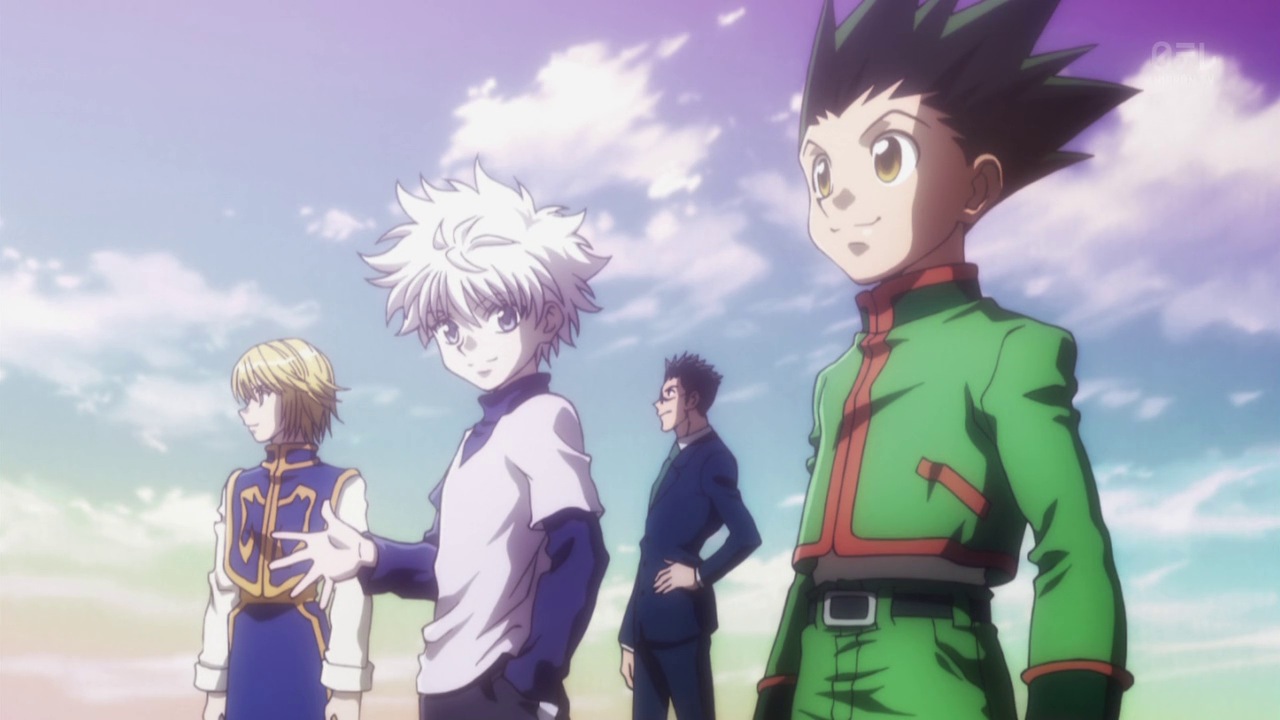The Philosophy Behind Hunter x Hunter: Free Will, Power, and Human Nature

At first glance, Hunter x Hunter might seem like a standard shonen anime—adventure, friendship, training arcs, flashy battles. But dig a little deeper, and you’ll uncover a story that’s far more layered, complex, and introspective than most.
Yoshihiro Togashi doesn’t just write about characters fighting monsters—he writes about what drives them, what breaks them, and what it truly means to be human in a world without easy answers. Here’s how Hunter x Hunter explores some of the deepest philosophical questions through its storytelling.
1. What Is Power Without Purpose?
From the very beginning, Hunter x Hunter raises the question: What does it mean to be strong? But unlike many other series, it doesn’t glorify strength for its own sake.
- Gon seeks strength to find his father—but as the series progresses, that goal becomes twisted. His pursuit of power ultimately leads to self-destruction.
- Killua is incredibly powerful but feels powerless because he lacks purpose and confidence due to years of manipulation and trauma.
- Meruem, the Chimera Ant King, is born with absolute power. And yet, he ends up seeking meaning through a board game and a fragile human girl.
🧩 Hunter x Hunter suggests that strength is not the goal—it’s a tool. What matters is how and why it’s used.
2. Free Will vs. Destiny
Many characters in Hunter x Hunter struggle with control—over their choices, their bodies, their futures.
- Killua’s story is all about reclaiming his free will from his assassin family’s conditioning.
- Nen abilities often reflect internal desires, fears, or limitations—self-imposed rules that become reality. It’s almost a metaphor for how belief shapes action.
- The Chimera Ants are born with instincts to dominate, but several begin to reject those instincts and form their own identities.
Togashi shows us that freedom isn’t given—it’s earned, and often painfully. The characters who grow are the ones who fight for agency in a world that constantly tries to define them.
3. The Ambiguity of Good and Evil
Morality in Hunter x Hunter is anything but black and white. Togashi goes out of his way to make sure we understand:
- The “good guys” aren’t always just or kind.
- The “bad guys” aren’t always cruel or wrong.
Take the Phantom Troupe: murderers and thieves, yes—but also a family with a code, bonded by loyalty and shared history.
Or the Chimera Ants: brutal and violent, but some evolve into deeply thoughtful beings capable of love, sacrifice, and doubt.
Even Gon, our bright-eyed protagonist, descends into terrifying moral grayness by the time of the Chimera Ant Arc. Hunter x Hunter forces you to constantly rethink your assumptions about who deserves sympathy, trust, or redemption.
4. What Does It Mean to Be Human?
This question takes center stage in the Chimera Ant Arc, but it’s a recurring theme throughout the series. Is being human defined by birth, behavior, emotion, or choice?
- Meruem is born a monster, but dies with more humanity than many of the people who sought to destroy him.
- Komugi, blind and physically weak, represents humility, grace, and strength of spirit.
- Ging, one of the most accomplished Hunters, is deeply flawed and emotionally distant—a reminder that genius doesn’t always come with goodness.
The show seems to say: being human isn’t about species—it’s about consciousness, compassion, and the ability to change.
5. The Burden of Knowledge
The more characters learn about the world, the more they struggle with it.
- Kurapika learns the truth about the Phantom Troupe and sacrifices his peace of mind for revenge.
- Gon learns that idealism can’t always survive reality—and he pays dearly for that knowledge.
- Even Leorio, who seems straightforward, chooses a life of medicine to heal people in a world that constantly breaks them.
Togashi shows that knowledge isn’t always a gift—it can be a curse, especially when it challenges deeply held beliefs or forces painful decisions.
Final Thoughts
What sets Hunter x Hunter apart isn’t just its intricate power system, unpredictable story arcs, or incredible character writing—it’s the philosophy embedded into every decision. Togashi asks real questions: about life, choice, morality, and meaning—and he doesn’t always give you answers.
Instead, he hands you a mirror and says, “You figure it out.”
That’s why Hunter x Hunter resonates so deeply with fans around the world. It’s not just a story about Hunters—it’s a story about what it means to live deliberately, with all the chaos and beauty that comes with it.
If you like this article, feel free to also check another one!
